Rob Gilhooly spurns the renowned comforts of a ryokan in a bid to get a taste of Japan’s great outdoors.
While idling away some dead time on a station platform several years ago, my wife and I played one of those write-and-tell games centering on the theme of an ideal holiday. While her list included words such as “silk sheets,” “Thai massage” and “white sand beaches,” mine was strewn with more exotic expressions like “bivvy bag,” “polypro underwear” and “crampons,” terms that got more than a little lost in translation.
Our mutual ground was camping – a ground that was pegged a little more in my half of the pitch, perhaps, but one to which she rapidly acclimatized. There followed six weeks camping in Europe and a month in South America, among others. She even bought some hiking boots and joined me on a couple of high-altitude treks. In turn, when we were near the sea I sacrificed an hour or three on the beach and succumbed to the occasional pummeling by a masseuse.
Yet, despite being based in Japan, we have never mustered the enthusiasm to go camping here. Years ago, I made several attempts but the long lines of vehicles, many with roof racks holding a variety of outdoorsy objects, were an early reminder of what was to come. Grounds were invariably overcrowded, facilities too dainty and portable television sets too noisy. Camping culture seemed as much about whether or not you had the entire set of matching Coleman camping gear as about the sheer pleasure of communing with nature.
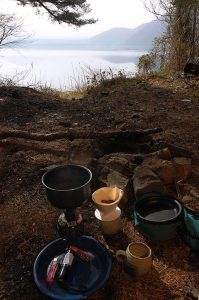 Then, one recent early spring morning, sunlight streaming through the bedroom window, I opened a closet door and our 1.5-person Eurohike tent fell on my head. Suddenly, we were stoked on images of barbeques by a still lake backed by snow-sprinkled mountains, reading books or playing Backgammon by torchlight and slumber under the stars on a rock-infested patch of woodland.
Then, one recent early spring morning, sunlight streaming through the bedroom window, I opened a closet door and our 1.5-person Eurohike tent fell on my head. Suddenly, we were stoked on images of barbeques by a still lake backed by snow-sprinkled mountains, reading books or playing Backgammon by torchlight and slumber under the stars on a rock-infested patch of woodland.
An hour later, we had hired a car, packed our camping stove, sleeping bags and other gear, and were heading for… somewhere. “Somewhere” could be anywhere, as long as it didn’t feature towering concrete buildings, computer monitors or middle-aged salaried workers with bad breath elbowing for a seat on the Odakyu Line.
A glance out of the kitchen window had revealed that Mount Fuji was almost cloud-free so, certain we’d find a campsite on one of the Fuji Lakes, we set the GPS for Japan’s most dominant symbol.
This, we agreed, is how it should be: planning a camping trip too carefully is like telling a loved one what you bought her or him for Christmas. At weekends and during the more climate months of the year, however, planning a camping trip in Japan – even, where possible, calling ahead to reserve a space – is pretty much essential.
According to official data there are more than 3,000 campsites dotted around the country, of which 1,301 are classified as autocamp-jo, or campgrounds that provide spaces for tents to be set up next to campers’ automobiles.
In 2004, some eight million people camped at these sites alone – a phenomenal figure considering the average number of tent spaces per camping ground is less than 100, most Japanese only camp at weekends and many of the sites only operate for a few months of the year. Still, this is nothing in comparison with a decade earlier, when, according to the Japan Auto-camp Association, 15.6 million campers pitched their tents at 890 autocamp-jo scattered around the country.
Whatever the numbers there’s little disputing that Japanese are enthusiastic consumers of the great outdoors: the outdoor goods market, which, according to Yano Research Institute figures, was worth a whopping ¥114 billion in 2005, up 2.9 percent over the previous year, provides ample proof of that.
Yet, there are signs that camping is losing its pegging in the grounds of Japan’s wide, wild world of leisure and recreation.
In addition to the falling number of campers, there has been a fall in the number of camping car and trailer owners, according to JACA’s annual white paper on the auto camping industry. Since peaking at 355,500 vehicles registered in 2001, the numbers have steadily declined to 289,300 in 2004.
According to JACA official Hiroaki Sakai, the real number of campsites has also fallen since peaking in the mid-nineties. Then, amid Japan’s stagnant economy following the burst of the economic bubble, a number of unused plots of land targeting the “second home” or summer house market were converted into campgrounds, causing a boom in campsite operations, Sakai said.
Since then, he added, there have been many closures of smaller, privately run sites, though the fall has been less dramatic over the past couple of years.
“Every leisure activity has its peaks and troughs,” he explained, “but there are definitely more recreational options today than a decade ago and overseas travel has become increasingly competitive, which also probably has contributed to the falling figures (in the camping industry).”
Given the conflict between the statistics and past experiences, it was difficult to know what to expect upon arrival at Kouan Campsite, which is picturesquely perched on a shady stretch of the northeastern shore of Lake Motoya in Yamanashi prefecture. We had noticed a number of recreational vehicles and camping cars en route and as we trundled along the road circling the lake there was a large number of visitors, mostly elderly amateur photographers armed with tripods and lenses the size of small telescopes, taking in the stunning – if slightly hazy – views of snow-swathed Mount Fuji.
But, having filled out the registration form – the proprietor giving us a sleazy, knowing grin as my wife signed her Japanese maiden name – and began our descent down the steep, narrow driveway leading from the campers’ lodge to the campsite, we were met by the somewhat disconcerting site of… nothing. Glorious, early spring day and the campsite was deserted.
This was just the start of the de-stereotyping process. Although its idyllic location remains the dominant memory of this woody, lakeside retreat, a close second was the plastic bottles, coffee cans and other discarded bits and pieces scattered about the site, the dilapidated and somewhat eerily vacant wooden cabins and the sign on the toilet wall that read “Aim Straight.” Dainty and overcrowded this campsite certainly was not.
One consolation, of course, was that we were not vying with 100 other campers for a decent spot to pitch our tent. Having surveyed our options at leisure, we decided on a place beneath the campground’s towering pine trees, with a lovely, but rapidly disappearing view of Mount Fuji.
American writer Dave Barry once wrote: “It always rains on tents. Rainstorms will travel thousands of miles, against prevailing winds for the opportunity to rain on tents.”
Having hurriedly set up the our tent – a pole snapping clean in half in the process – we ventured down to the shore to admire Japan’s venerable mount, only to see it disappear behind a dark black cloud and for the first spots of rain to stir into life the previously glassily, still lake. We beat a rapid retreat to our slightly lopsided tent, the offending pole secured by a camera strap, silently praying the god of the elements had misplaced the instruction manual on how to set into motion high winds or heavy rain.
Fortunately, it was but a shower. Re-emerging from the tent 10 minutes later, armed with a torch I went about the site in search of dry wood – my retribution for coming second in our first round of backgammon.
It was then in the fast-fading light that I stumbled across the kitchen and wash area, deserted and barely accessible for overgrowth, trash and an assortment of other debris. Only marginally lit by a flickering light the taps had been left running with a worrying sign requesting they not be turned off to ensure the pipes would not freeze. As I returned to the tent, the woodland menacingly silent, the lake silky smooth once more, a nearby cabin door creaked into life. The words “Blair Witch” played on my mind like bad supermarket music.
The campsite’s somewhat shabby condition – excusable perhaps at this early stage of the season– was almost certainly an exception to the rule. Many campgrounds in Japan are reportedly well maintained, with electricity supplied to those requiring it at little extra cost. There’s often almost too much lighting and flush toilets and hot showers are almost the norm, even in campsites located well off the beaten track.
Campers’ lodges are well stocked with foodstuffs, and camping gear such as lanterns, bedrolls, sleeping bags and so on are often available for rent to aid the forgetful of us. Some are located in the grounds of a hot spring resort and offer a variety of other leisure activities – tennis courts, swimming pools, even pony riding and mini-golf courses – in addition to washing machines, barbeque bays, bicycle rental, fenced-in sites for campers with pets and other services. Others feature thematic options, such as the opportunity to camp in an American Indian-style Tipi tents, or stay in a disused railway carriage (see recommended campsites).
Camping etiquette is equally fastidious. Flip through any Japanese camping magazine or book and the first section is likely to feature a detailed description of the exact camping goods you will require and a numbered guide on how to wash up, park your car, tidy away rubbish, and so on. Many campsites have a ”lights out time” at around 10pm or 11pm, after which late-night revelers are asked to keep the noise down to avoid disturbing neighboring campers.
Back at our little 1.5-person, wobbly tent, though, there was little fear of disturbing anyone within a 10-kilometer radius. We were still the only campers and the lodge above had long since closed. You could hear a fir cone drop.
Having gathered sufficient dry wood and fir cones to start our campfire, we began to fan the flames of another much-cherished feature for the camper: a barbeque. As the sausages, burgers and vegetables sizzled on the hotplate, in the charcoal-blue light of dusk we cracked open a couple of beers, took out a well-thumbed camping magazine borrowed from the lodge, turned up the gas lantern and began making plans for our next camping trip.
Story by Rob Gilhooly
From J SELECT Magazine, July 2006
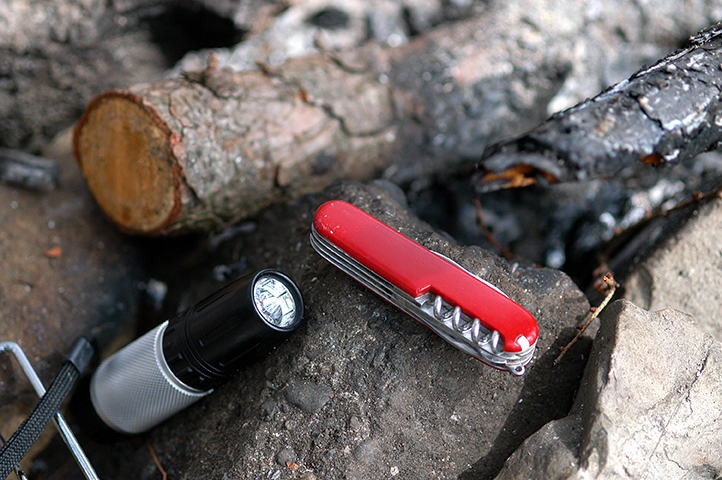

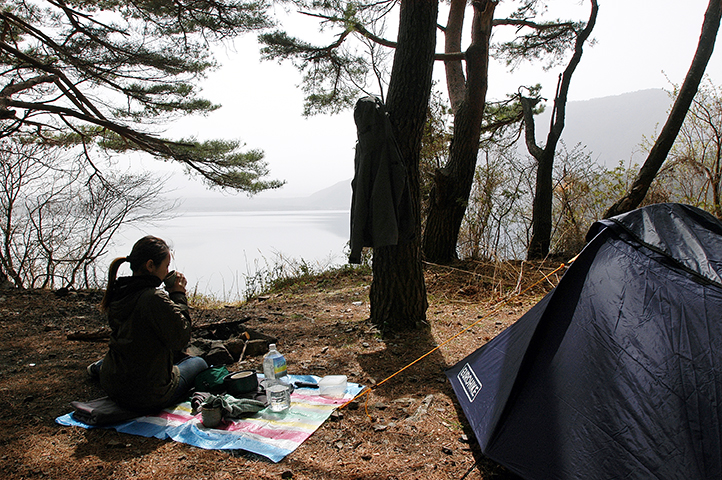



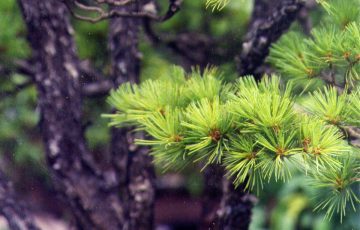
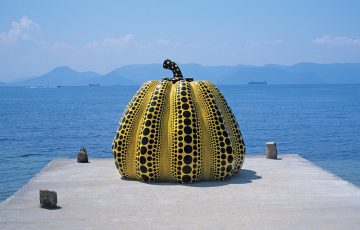
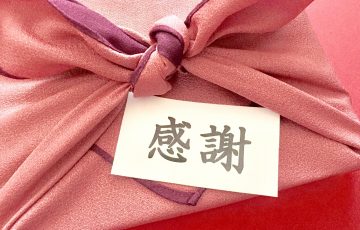
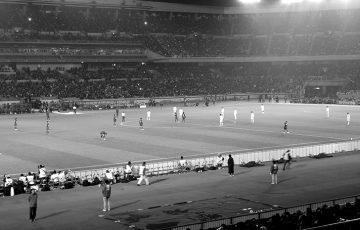
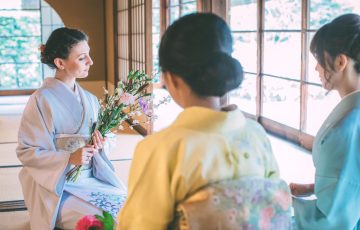
-360x230.jpg)
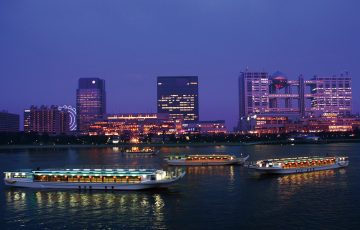
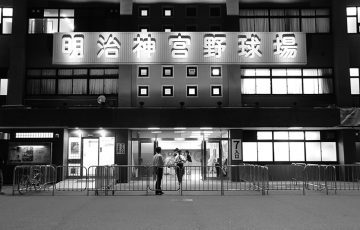


Recent Comments